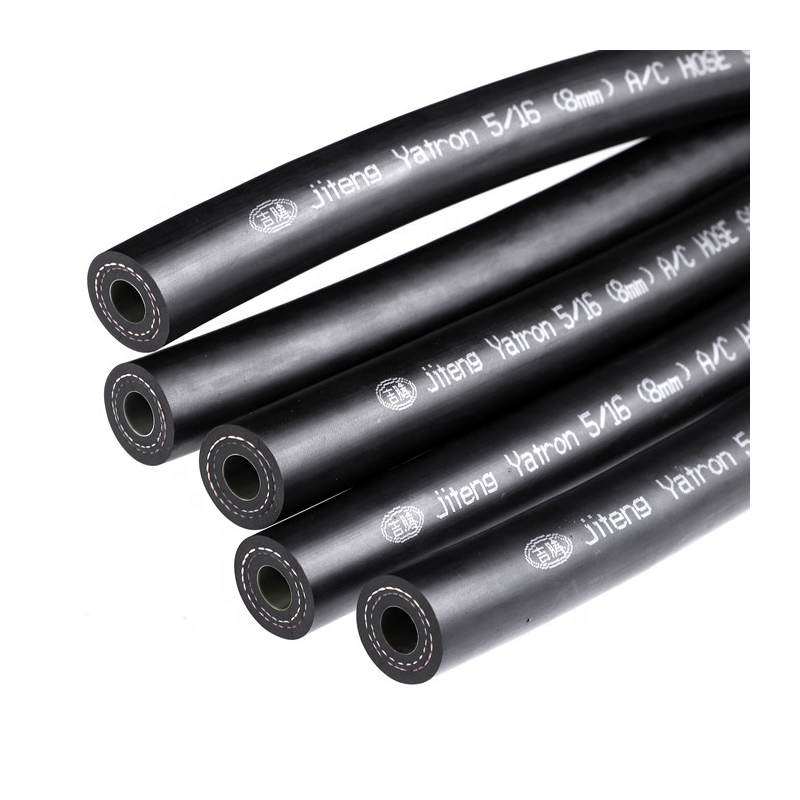diesel heater fuel pipe
Dec . 03, 2024 18:43 Back to list
diesel heater fuel pipe
Understanding Diesel Heater Fuel Pipes Importance, Types, and Maintenance
Diesel heaters are an essential component for various applications, particularly in maritime, automotive, and industrial sectors. These heaters provide efficient heating solutions where conventional methods fail to deliver adequate warmth. At the heart of these systems is the diesel heater fuel pipe, a critical element that determines the efficiency and safety of the heating process.
The Importance of Diesel Heater Fuel Pipes
A diesel heater fuel pipe is responsible for transporting diesel fuel from the fuel tank to the burner or combustion chamber of the heater. Its primary function is to ensure a consistent and efficient flow of fuel to generate heat. The performance of a diesel heater largely depends on the integrity of its fuel pipe. A malfunctioning or damaged fuel pipe can lead to fuel leaks, inefficient heating, and even hazardous situations such as fires due to fuel vapors.
Moreover, the fuel pipe must withstand various environmental conditions, including temperature fluctuations and exposure to different substances. Therefore, understanding the dynamics of fuel pipes is crucial for anyone using diesel heaters, whether on a boat, in a vehicle, or within industrial settings.
Types of Diesel Heater Fuel Pipes
There are several types of fuel pipes used for diesel heaters, each designed to fulfill specific requirements
. The most common types include1. Rubber Fuel Hoses These are widely used due to their flexibility and resilience. They are suitable for low-pressure applications and can handle the vibrations typical in vehicle engines. However, rubber has limitations when it comes to exposure to certain chemicals, which may lead to degradation over time.
2. Metal Fuel Pipes Often made from stainless steel or aluminum, metal pipes are more durable and can withstand higher pressures and temperatures. They are less prone to punctures or abrasions. However, they are also heavier and less flexible compared to rubber hoses, which can make installation more challenging in certain situations.
3. Plastic Fuel Pipes Generally made from nylon or other types of plastics, these pipes are lightweight and resistant to corrosion. They are suitable for low-pressure and low-temperature applications but can become brittle over time if exposed to extreme temperatures.
diesel heater fuel pipe

Each type of fuel pipe has its advantages and shortcomings, making it vital to choose the appropriate type for specific applications to ensure optimal performance of the diesel heater.
Maintenance and Care for Diesel Heater Fuel Pipes
Keeping the diesel heater fuel pipe in good condition is essential for the overall efficiency and safety of the heating system. Here are some maintenance tips
1. Regular Inspections Periodically check the fuel pipes for any signs of wear, cracking, or leaks. Soft spots or bulges in rubber hoses are significant indicators of an impending failure.
2. Cleanliness Ensure that the fuel tank is free from contaminants. Dirt or debris can obstruct the fuel flow, leading to inefficient operation or damage to the system.
3. Proper Installation Ensure that the fuel pipes are installed correctly, without unnecessary bends or kinks that can restrict fuel flow. Use appropriate clamps and fittings to secure connections.
4. Temperature Monitoring Keep an eye on the temperature of the fuel pipes. Excessive heat can lead to premature failure, particularly in rubber hoses. Insulating the pipes can help manage heat exposure in hot environments.
5. Replace When Necessary Consider replacement of the fuel pipes as part of routine maintenance. If any signs of wear are noticeable, it is imperative to replace the affected pipes to prevent further damage or accidents.
Conclusion
The diesel heater fuel pipe plays a pivotal role in the functioning of diesel heaters, delivering essential fuel to the combustion chamber and ensuring efficient operation. Understanding the different types of fuel pipes, their benefits, and maintenance practices is crucial for anyone relying on diesel heaters for heating solutions. By prioritizing the integrity and performance of the fuel pipe, users can ensure optimal heating efficiency, safety, and longevity of their diesel heater systems. Whether one is a marine engineer, an automotive technician, or a factory manager, proper attention to these details will lead to enhanced operational reliability in their heating systems.
